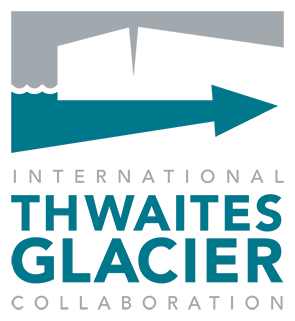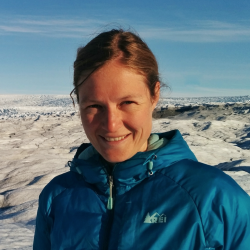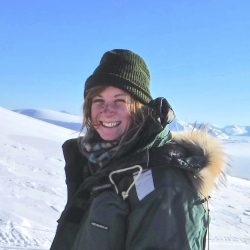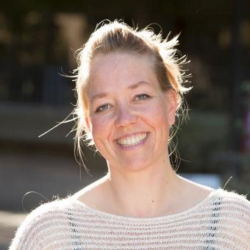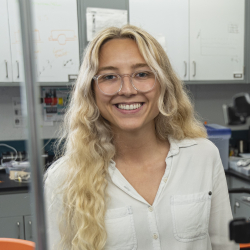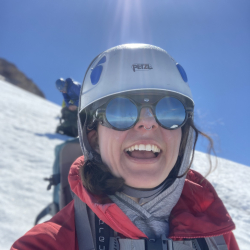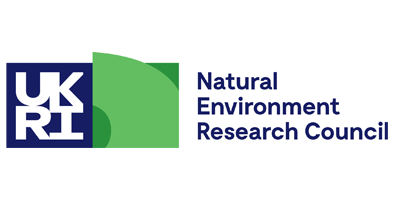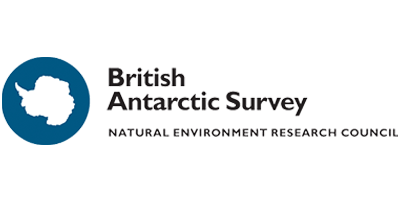Irena Vaňková is a polar scientist working in the area of ice-ocean interactions. In 2018 she finished her PhD under the guidance of David Holland at the Courant Institute of Mathematical Sciences at New York University. After that she spent two years as a Marie-Curie Fellow at the British Antarctic Survey, where she continues to work as a physical oceanographer.
Naomi Ochwat (she/her) is a PhD student in the Department of Geological Sciences at the University of Colorado Boulder. Her research focuses on using remote sensing observational data to investigate the Marine Ice Cliff Instability (MICI) hypothesis, including fracture processes, calving, and the role of sea ice melánge. Her role in ITGC is to provide real-world parameters to help constrain ice cliff models and subsequent MICI projections.
Lily Green provided administrative support for the Science Coordination Office in 2020-2022.
Laura Glastra is a Ph.D. student in Physical Oceanography at the University of Rhode Island's Graduate School of Oceanography. Her research focuses on gas exchange processes in polar regions, specifically how noble gases are partitioned between sea ice and seawater during freezing. She is currently carrying out laboratory experiments to provide further insight to this process. On the 2022 TARSAN cruise she will be collecting samples of seawater for isotopic analysis of noble gases, which can be used as physical tracers to help identify water masses such as glacial meltwater.
As world leaders come together next month for the 26th UN Climate Change Talks of the Parties (COP26) in Glasgow, UK, sea-level rise will be on the agenda for countries with low-lying areas looking at how to manage rising seas. Today (11 October 2021) a new film launches to highlight how the International Thwaites Glacier Collaboration, of around 100 scientists from the US, UK, Germany and Korea, are aiming to reduce the uncertainty of sea-level rise from the mighty Thwaites Glacier in West Antarctica.
Samuel Kachuck is a Postdoctoral Research Fellow on the DOMINOS project, based at the University of Michigan, Ann Arbor. He is studying how the quickly deforming mantle under Thwaites might impact the stability of its grounding line and how to incorporate crevasses in a large scale ice sheet model to project Thwaites' future calving behaviors.
Crawford 12, 2701
Crawford, A.J., D.I. Benn, J. Todd, et al. 2021. Marine ice-cliff instability modeling shows mixed-mode ice-cliff failure and yields calving rate parameterization. Nat Commun 12, 2701.
Leilani Henry consults with ITGC on building positive work environments. She works with the participants of the ITGC program to build a welcoming, equitable community through workshops and coaching.
Elizabeth Case (she/they) is a PhD candidate at Columbia University and the Lamont-Doherty Earth Observatory. Their research focuses on how snow turns into ice, water moves through old snow (firn), and snow and ice change, move, and can be measured under strain. They co-founded Cycle for Science, an adventure education program that translates research into K-12 lesson plans, and was faculty on the Juneau Icefield Research Program in 2018 and 2019. When they're not teaching or on ice, they love to climb and write. You can find her on twitter at @elizabeth_case.
